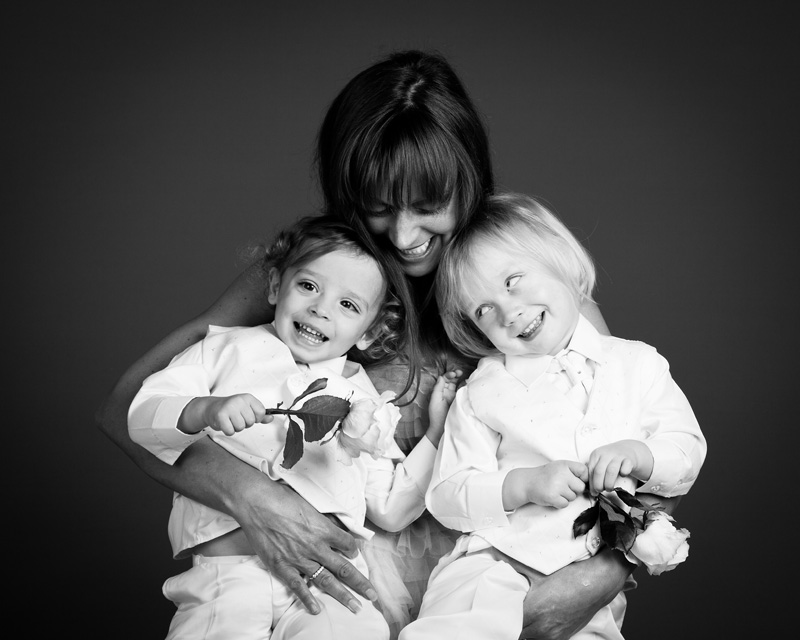
It’s absolutely true and fair to acknowledge that sometimes our kids drive us up the wall. They bicker, they disobey, they are mischievous, they answer back, they are defiant. So inevitably as parents sometimes the frustration levels trying to get this little person to conform and do it our way makes us bubble up into explosion. We shout, we yell, we become a beastly version of ourselves screaming at this naughty being to do what they are told. And in worse case scenarios we smack (never ever me for the record. I fundamentally disapprove of physically hurting a child ever).
Let’s examine what’s going on in these heightened moments of intensity, what the impact is for both sides of the conflict coin and how we can calmly, positively and lovingly resolve the situation.
For the parent it’s plain and simple. There are rules to be obeyed. There is an accepted way of doing things. There’s a necessity for conformity, for compliance and woe betide anyone who steps out of the expected status quo. The parent is moving from A to B in an expected way so anything slowing or interrupting that usual flow unexpectedly is a frustration, an irritation, a problem.
For the child there’s a natural curiosity, an exploratory mind, and indeed one that’s potentially pushing a boundary. There’s a discovery phase going on. Actions and consequences being tested out as part of self-development. What happens if I do x versus what happens if I do y? I need to complete my experiment and solidify my experiential learnings here for next time. I’m also naturally pursuing what feels right to me in this moment as that is what I am hard wired to do intuitively.
Never Assume
The conflict comes when the parent ‘assumes’ the child is clear on the correct thing to do whilst simultaneously the child ‘assumes’ it’s fine and great to do things their way in the spirit of following natural desire and curiosity. This spirit of assumption is where the highly charged opposition occurs. We’re fundamentally dealing with two different perspectives. Each perspective correct in its own realm, correct but different. And thus tempers start to flare on each side as bewildered lack of respect for each other’s perspective rises up into aggressive opposition.
This is where effective communication comes into play. Communicating intelligently, sensitively, clearly and lovingly at this point will remedy the situation. Communicating with anger, spite and raised tones is simply going to inflame things. Obviously I’m not expecting the child at this point to be doing the intelligent, sensitive and clear communication. We as the adults are the ones who should conduct this interaction in a responsible way.
The Parent’s Perspective
What happens if you’re the type of parent who simply explodes? The parent who sees red – blazing, blinding, vicious, overwhelming RED, when a child defies you? You shift into a hyper energetic state of dominance and adrenaline to try to control and command the situation. The more resistance you receive the more likely you are to tumble into aggression as part of your cortisol fuelled reaction to your emotional and physiological state. So, you’re shouting “Do black!” and the child is obtusely ‘doing white’. Resistance and opposition on both sides. You get angrier and angrier. Shouting louder and louder and then if you’re really out of control you unconsciously move into a physical manifestation of your frustration and hit the child. You defend it as smacking, as a little clip, a little tap, but you expend your own lack of mental and emotional control into hurting your child.
What’s going on here? You’re actually afraid. You’re hugely insecure. You are frightened by your own lack of control. This is a classic fight or flight response. You can’t fly out of here, you’ve got to manage this situation to resolution and you just don’t know how, so you fight.
Your energetic state becomes a bubbling pot of mental blurring, emotional fear manifesting as anger and physical tension which incentivises the lashing out. This intensity needs release and so that little child gets it downloaded hard and fast. And pretty brutally at that.
The Child’s Perspective
From the child’s perspective they’re pretty out of their own depth now too. They were thinking and behaving a certain way and now they have been virulently chastised, punished, reprimanded and perhaps physically hurt as a consequence. (Of course I’m alluding to the charged moments after several warnings when the disobedience persists.) If they don’t really understand why or what they’ve done wrong confusion levels will rise up exponentially. If they’re a defiant, together soul with a clear sense of right and wrong they will defend their thinking and behaviour endlessly to try and get you to see their point of view. Where this becomes tricky is that very few children have sophisticated communication skills so persuading you in a logical and clear way that what they’re doing is right is going to be a challenge. Even more so if you’re beyond listening mode. If they’re a sensitive, fragile soul they may realise immediately this is a battle they won’t ever win and become sullen, quiet, teary and acquiescent, burying the injustice and confusion deep inside (to re-emerge later in adult relationship issues).
Neither of the child’s responses above to your angry outburst are healthy nor acceptable. Primary parental responsibility is to teach our children how to flourish and grow confidently and competently into the world. So, dealing with challenging situations is something we must teach effectively and patiently. Leading by example and mis-teaching that when you feel frustration or opposition you explode into an aggressive shouty, hitting being is precisely the wrong thing to do. You are setting your child up to develop anger issues from now onwards leading him or her to experience inevitable relationship challenges along their journeys. You are failing to teach any coping mechanism at all. You are fundamentally failing.
Don’t get me wrong. Parenting is hard. Life can feel overwhelming. But you have to put your responsibility as the parent first and foremost and respect the influence you have over this little mind. The gift you have been blessed with of teaching this little soul how to thrive in the world. Even in this angst ridden moment of conflict you are still the teacher and must not waver in recognition of this.
You need to take deep look in the mirror at your behaviour and consciously develop strategies to squash your (immature) response to these moments of conflict. The best parent and child interactions occur when deep understanding and empathy are apparent (for any interaction with another being in fact). Steven Covey in his ‘Seven Habits of Highly Effective People’ life manual teaches my favourite life rule which I use at work and at home, in coaching and parenting, in leading and living, in every relationship, “Seek first to understand before you can be understood’. And that my dear friend should be your mind, body, soul way of dealing with child conflict. What are they thinking and believing that is causing them to behave the way they are? Why are they doing what they are doing? Why aren’t they complying with your request? Once you understand their depth of thought, their beliefs, their motives, their drivers in this moment, you need to then reflect it back so the little soul feels heard and respected. Only once they feel your empathy and love can you then start to transition their cognitive system into considering the new thought i.e. what you want them to do. Only then can you start bringing them round to your perspective.
Let’s take some examples: –
- I will only eat Shreddies for breakfast
- We won’t go to sleep tonight without giggling for 2 hours
- I don’t want to go to school today because it’s snowing
I Will Only Eat Shreddies For Breakfast
It’s the morning rush, you’ve got multiple pressures building as your day takes pace, you set up the breakfast table with a range of cereal options and one little poppet refuses to eat anything other than Shreddies, which is not part of today’s range. In this moment if you just explode and scream that “For God’s sake Cornflakes are just as yummy.”, you’ll find the tears just keep on falling, no one eats anything and you become later and later with the threat of missing registration, then your train and then your leadership meeting looming all the larger as likely realities. If however, you sit down and cuddle your child , look them in the eye and state how you understand how sad and disappointing it feels not to have Shreddies here today and you both acknowledge the frustration together whilst having a loving moment of connection, the empathy and understanding is high. You can therefore then gently shift into exploring other options available to solve the problem. Once that frustrated child feels heard and understood, that their pain and suffering is real and acknowledged by you they will be far more amenable to shifting into a productive, solution-centric state; a state where they are still directing things, feeling a sense of control (so important to developing minds) and they are more likely to suggest themselves, or cooperate with your soft suggestion of, the idea of cornflakes. A moment of tension has in fact been transformed into a moment of deepening bonds and resolution discovery. A little mind has learnt and grown. Big fat tick to teaching essential life skills.
We won’t go to sleep tonight without giggling for 2 hours
This one hits my family hard most nights. We’re a bustling family with 2 teenagers bounding around late in the evening and noisily at that. For 8 year old twins in a high energy home, add in sharing a bedroom and every night is sleepover, fun, party night. There’s always another energetic body in the room, chats to have and days to digest. Inevitably bedtime becomes their download time, their way of closing off from the day of external world input into internalising between themselves (such is the miraculous twin connection) what was good or bad, funny or sad and what their plans are for tomorrow. Invariably it’s the funny that tickles their minds at 8pm, 9pm, worse 10pm. Envisage now hyper, giggling, bouncing boys falling out of their bunkbeds in hysterics laughing even harder each time a parent comes in to say hush now you really, REALLY must sleep. It’s unrelenting, noisy, distracting, frustrating and seems to go on and on and on. Night after night, hour after hour. I’ve noticed the nights it escalates out of control with my husband exploding impatiently are the nights he’s pre-occupied with another issue, he’s feeling pressure elsewhere. That’s when he has zero mental capacity for working with transitioning little minds into calm states. In these instances, his resolution usually comprises yelling and pleading before he drags one twin out of bed and leaves him in the guest room alone. I know this is a really common twin management bedtime practice. Frustration, anger, raised voices, violence, separation. My softer and more effective resolution is this. I steel myself and consciously make time for a lengthy wind down period. I commit to five or ten minutes in bed with each child where we snuggle, they tell me the best bits of their day then I sing a favourite lullaby, then I do the same for the other child. At the end of this ritual they’ve both felt heard, loved and are now soothed and calm. Then they tend to settle and go to sleep. If they don’t, when I have expressly emphasised it is time for silence and sleep now no quibble, I go back in with a very calm threat that xxx won’t be coming for the playdate tomorrow if there’s one more word, or no hot chocolate this weekend if I hear another sound, or whatever means a lot to their little world. It’s calm and clear boundary setting. It enforces that I love them but won’t accept misbehaviour. The biggest lesson I’ve learned about bedtimes is the calmer, softer and more gentle the descent into bedtime the quicker the children settle. Homework, tea, computer games, noisy kitchen, music and tv on, BED NOW!, never ever works. Their minds need to be soothed into bidding the day goodnight. Of course!
I don’t want to go to school today because it’s snowing
A simple case of mixed assumptions. There a little mind who’s woken to a white wonderland outside and holds a deep belief that a snowy world equals no school. There’s a parent who knows the roads are clear, work needs to continue as planned and children are all going to open schools. When the child stubbornly refuses to get out of bed the parent who screams, shouts and hurts that child to get him or her dressed breaks a code of conduct between parent and child. The parent who gently empathises with the disappointment that the world is indeed still functioning and life’s routines will continue as normal maintains a loving bond between parent and child. After empathy and understanding comes the transition into ways to lessen the pain and discomfort. How about we go sledging after school instead? This soothes the dis-ease of the situation positively, proactively and avoids a sobbing, tantrumming or worse silently weeping, acquiescent child. There is always a way to embrace communication to solve any conflict without conflict.
The Big Fat Responsibility We Have As Parents
Sadly, why so many parents fail at effectively communicating with their little ones is time pressure. “I haven’t got time to shift his brain into a new way of thinking.” Well I won’t accept that. We should always make time for our children above everything else. What could possibly matter more in life than nurturing new souls? Our children’s positive mental development comes under our care first and foremost. If you haven’t got time to listen and talk to your children, you shouldn’t be a parent.
As I grow older, and hopefully wiser, I have less and less tolerance for anger in our world and especially in our homes. Angry families are so sad to behold. Angry parents are inexcusable. Get a grip of yourself. Leave the room, calm down, get another adult to help, walk away. Don’t let your children see you as an out of control role model otherwise very quickly you’ll have an army of out of control children running amok too. If you really can’t control your anger, get help, read anger management books, do anger management hypnosis or meditations, see a therapist, work with your coach, acknowledge it and heal it. Respect the gift that being a parent is and halt your angry parenting right now.
For Further Reading I highly recommend:-
How to Talk so Kids will Listen and Listen so Kids Will Talk by Adele Faber
Kid Co-operation: How to Stop Yelling, Nagging and Pleading and Get Kids to Cooperate by Elizabeth Pantley
Seven Habits of Highly Effective People by Steven Covey
Seven Habits of Highly Effective Families: Building a Beautiful Family by Steven Covey









